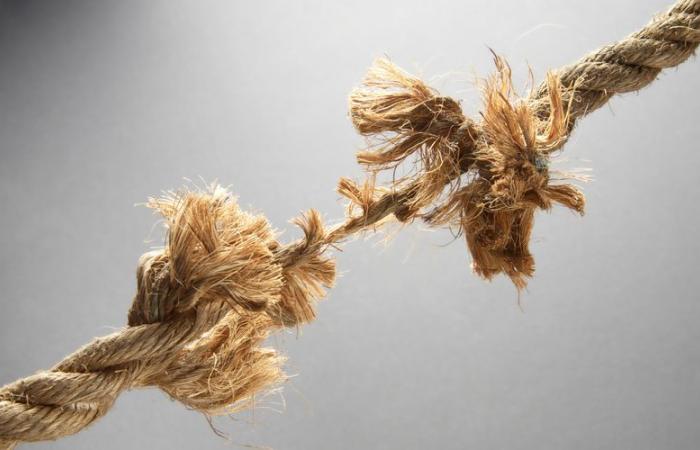
In France, children have a maintenance obligation towards their parents when they age or become ill. A duty that Marine Gatineau Dupré, who pushed the Vignal law on name change with her association, would like to transform into law. With the “Liens en sang” collective, she calls into question this 19th century law which sometimes pushes people who are victims of incest or abuse to provide for the needs of their tormentors once they become adults.
“It’s an archaic law,” insists Marine Gatineau Dupré, the Palavasienne president of the Porte mon nom association. After fighting for the law on name change with Patrick Vignal, she returns to the fight. The thousands of testimonies she received inspired her to take on this new battle: the law on maintenance obligations.
DR.
When parents age or become ill, it is up to their children to take care of them. It’s an obligation. A duty, not a right. And while it may seem natural to take care of your parents when you grow up in a healthy and loving family, it’s a double whammy when you’ve suffered abuse. “Imagine, people who are victims of incest have to pay for their father’s nursing home”deplores the forty-year-old.
A law from 1803
“Archaic”that’s hardly hyperbolic. Article 205 of the Penal Code was promulgated on March 27, 1803, and published in the section “Obligations that arise from marriage.” The tone is set. Since then, apart from a few scattered modifications, nothing has changed. “At the time, all generations lived in the same house, of course there was a maintenance obligation. And people would die at 45!”continues Marine Gatineau Dupré.
For her, it is obvious that this law must be rewritten and adapted to morals. While tongues are wagging about incest, abuse, neglect… For some parents, it is high time to free victims from their maintenance obligation towards them. She began drafting a bill, with the help of MP Charles Alloncle (UDR).
“I received a testimony from a woman who is 71 years old. She was raped throughout her childhood by her stepfather, who is now 95 years old. The bailiff fell on her to make her pay the nursing home. She has a miserable retirement, her son has Charcot’s disease… She wants to end her life. She would rather die than pay for her tormentor’s retirement home.”
It is possible to challenge this obligation with a family affairs judge (JAF). It is then necessary to prove “serious failings” parents. You can then obtain a total or partial exemption.
When we know that only 12% of incest victims file complaints, and that among them only 1% are recognized as victims, we understand the difficulty for children of failing parents to dissociate themselves. Furthermore, 12% of French people say they have suffered physical violence from their parents. In 2023, 96,700 incidents of violence against minors were reported to the authorities. So many people who are hard to imagine paying for their ancestors.
What cost are we talking about?
The maintenance obligation concerns children, grandchildren, sons-in-law and daughters-in-law. Not the siblings of the parent concerned. If the latter manages to prove that he is in need, the judge orders the descendants to pay alimony or to pay certain costs for their ascendant. The amount paid is proportional to the debtor’s income and the creditor’s needs.
Beyond questions of morality, the forty-year-old also questions the financial part. Why don’t we pay contributions for the nursing home? Care? In the same way that we contribute to retirement. And why wouldn’t the State pay for this if necessary? In exchange, he would recover the inheritance of the separated child. The Palavasienne sees it as a form of balance.
“What we are asking is that the debate enters the public square. And that there be a financial study, an impact study. Let us know concretely what it costs and what it brings in”insists the Palavasienne.
The average length of time spent in nursing homes is three years and four months according to Dress. Per day in Hérault, you have to spend 68 euros to reside in such an establishment, according to the National Solidarity Fund for Autonomy. In total, on average there are 81,600 euros to be paid for the children of dependent elderly people, excluding aid.
If children refuse to provide for their parents, they are exposed to a complaint for family abandonment. An offense punishable by two years of imprisonment and a fine of 15,000 euros.





